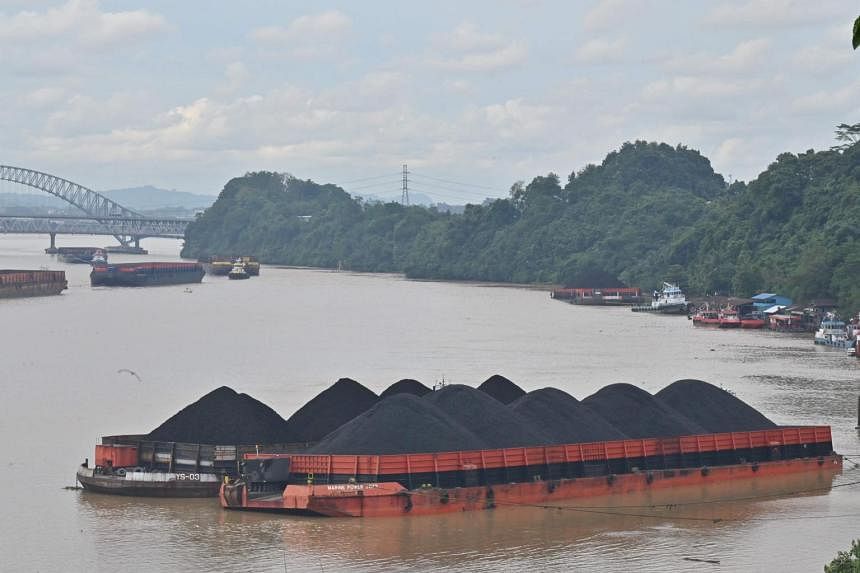JAKARTA - Indonesia has issued a regulation to encourage renewable energy use in one of the world's biggest carbon emitters, including a plan to retire some coal plants early.
The world's largest exporter of coal aims to increase the proportion of renewables in its energy mix to 23 per cent by 2025, but has only reached around 12 per cent so far.
Coal currently powers around 60 per cent of the country's electricity needs. Indonesia set a goal last year to achieve net-zero emissions by 2060 and pledged alongside dozens of other countries to phase down coal use to help limit global warming to less than 1.5 deg C above pre-industrial levels.
The United States, Japan, and other donor countries "are prepared to support such a strategy with significant amounts of financial support", the US Treasury said in a statement after officials visited Jakarta, referring to the effort "to significantly reduce emissions in its power sector, including by transitioning away from coal and towards renewables".
The authorities have been instructed to create a plan for early retirement of some coal power plants, and the government could help absorb any losses incurred, according to the regulation issued late Wednesday.
The regulation states no new coal power plants can be built, but those that are already in the pipeline and those that are integrated with the natural resources processing industry will be allowed to go ahead as planned.
But emissions by these upcoming coal power plants must be reduced by 35 per cent within 10 years of operation compared to average coal plant emissions in 2021.
Also, these power plants can only be operated up to 2050.
The government also set a new pricing system for renewables - geothermal, hydro power, and solar power - to encourage investment. Developers previously had to go through a lengthy negotiation with the state utility to reach a pricing agreement.
Indonesian Geothermal Association (INAGA) chairman Prijandaru Effendi said the regulation differed from industry proposals, including by using a ceiling tariff instead of feed in tariffs, but said more details were needed.
"Maybe in six months time we can say whether this is good or bad," Mr Prijandaru said.
To boost renewables' investment, the government will also give fiscal incentives, including financing facilities and ease of licensing in forest areas.
The International Energy Agency said this month Indonesia needs to ensure policy reforms, including introducing transparent and competitive tariffs and predictable project pipelines to encourage renewables and reduce reliance on coal. REUTERS

